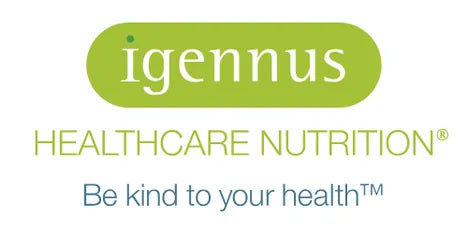Optimising collagen levels has many benefits for health including its ability to reduce joint pain (1), improve skin elasticity and hydration (2), and even improve sleep. (3) However, collagen levels in the body decline from your mid-30s and are not replenished optimally as you age. Whilst our ancestors obtained plentiful collagen in their diets from what we call today ‘nose-to-tail’ eating, many shun collagen-rich foods for a variety of reasons. For followers of a plant-based diet, however, pre-formed collagen is entirely absent.
The good news is your body does form collagen on its own - as long as you provide the three key building blocks; we can harness this ability and boost the body’s natural collagen production. In this article, we explore the nutritional building blocks for collagen production and introduce Vegan Pro-Collagen protein powder - the latest innovation expertly formatted by our nutrition scientists. Vegan Pro-Collagen protein powder provides all the building blocks for collagen synthesis and is the first of its kind to mirror the nutritional profile of collagen.
Boosting collagen production with plant-based foods
When taking a standard, animal-derived collagen supplement, the body breaks down the collagen protein into its individual amino acids. With this pool of amino acids to choose from, the body then ‘decides’, according to need, which proteins to build for different functions; one such function is collagen production.
To manufacture collagen in the body, there are three nutritional requirements:
- Obtaining the three key collagen amino acids that make up 50% of the structure of collagen
- Adequate protein intake to provide other amino acids to complete the structure of collagen
- Vitamin C as a co-factor to support the functioning of enzymes required for collagen formation
Obtaining the right balance and levels of these collagen amino acids can be a little tricky when following a vegetarian or vegan diet, firstly due to likely lower protein intake, and secondly, to an imbalanced intake of amino acids.
Not only is the amino acid pool limited in a plant-based diet, but collagen synthesis may also be lower. A study comparing gene expression in meat eaters versus vegetarians found that higher carbohydrate consumption in vegetarians was associated with lowered collagen synthesis (4) - another reason to focus on optimising collagen levels.
1. Three key collagen amino acids
When considering the structure of collagen, hydroxyproline, glycine, and proline are the main amino acids, together making up around 50% of collagen. Other amino acids are involved too, but getting these three as the base is key.
Of these three amino acids, hydroxyproline is of particular concern as it is often absent in a vegan diet. Hydroxyproline can be made in the body if there is adequate intake of the amino acid proline, as well as vitamin C, but this is not always the case if they are prioritised to be used elsewhere in the body.
Hydroxyproline is found in alfalfa sprouts, but these are approximately only 4% protein and only a small portion of this is hydroxyproline, so you would need to graze on alfalfa sprouts the entire day to obtain meaningful amounts – not a feasible option.
Glycine and proline are available in a vegan diet, but are consumed at lower levels compared to meat eaters. (5) Glycine is the main amino acid in collagen, making up around a third of its structure. Ensuring a wide variety of soy, pulses, nuts and seeds can help to increase intake of these important amino acids.
2. Do you get adequate protein?
If you don’t get enough protein, the signs of deficiency are easy to spot; hair becomes thin, nails become brittle and skin looks dull. Other internal symptoms range from hormone imbalances to joint pain.
Although a low intake of protein is uncommon in the general population, it can be quite challenging to obtain good levels on a vegan diet. It’s certainly possible to obtain the UK reference nutrient intake of protein of 0.75g per kg of bodyweight (52.5g of protein for a 70kg person each day) (6) but this would require pulses, soy and nuts making up the bulk of your diet – sources which can also be hard to digest.
Getting enough protein in your diet is the first step, but the real difficulty with a plant-based diet is being able to obtain an optimal balance of the amino acids which make up collagen.
Complete proteins & amino acid composition – getting the balance right
Some evidence suggests that animal protein is superior to plant-based protein, and there’s good reason for this. The levels of amino acids present in plant-based foods are often much lower, and rarely contain all of the essential amino acids. Animal proteins, on the other hand, are well known for being ‘complete proteins’, meaning they often contain the 9 essential amino acids. These essential amino acids cannot be made in the body, so we need to obtain them from foods, and at ideal ratios for health.
You have to be smart when it comes to plant-based eating and protein intake, as most plant foods are not complete proteins. Although foods like soy and quinoa proudly boast as complete proteins, some of the amino acids are at very low levels, so the overall balance is not ideal.
You often need to combine a variety of plants to obtain a complete protein, ensuring that your body has a balanced pool of amino acids to choose from, to make up a complete protein. Combinations could include nuts and seeds with whole grains (e.g. almond butter on seeded bread), beans with whole grains (e.g. bean chilli with brown rice) or pulses with seeds (e.g. houmous). Although protein is not stored in the body in significant amounts, we can hold a small pool of amino acids, so while we don’t need the perfect balance of amino acids in one meal, ideally we do within the same day or two.
Other amino acids to look out for:
Some of the essential amino acids are considerably lower in a vegan diet, so ensure you focus on those which are most likely low. Obtaining a good balance of all of the essential and non-essential amino acids is key for good health. Amino acids are not just building blocks for proteins, they also have their own unique roles in health. The amino acid glutamine, for example, is excellent on its own to stimulate growth of the intestinal mucosa to improve gut barrier function. (7) Although glutamine is most abundant in meat, seafood and dairy, it is also found in nuts, pulses and green leafy vegetables.
- Methionine and lysine
Data shows that vegan diets are lower in all amino acids, but these 2 amino acids are the lowest. Compared to meat-eaters, vegans consume 47% less methionine and 43% less lysine (5), both essential amino acids, so these must come from the diet.
Lysine is particularly important as it is required to build cross-links between the molecules to build the fibrils and the fibres of collagen, essential for healthy tissue function, growth and healing.
While usually sourced at high levels in meat, methionine and lysine can also be found in tofu, nuts, beans, peas and quinoa.
- Leucine, isoleucine and valine
These three amino acids are set apart from the others because of their different chemical structure. Leucine, isoleucine and valine are BCAAs (branched-chain amino acids), all of which are essential amino acids and are consumed by vegans at considerably lower levels compared to meat eaters. (5)
BCAAs have a specific function in the body - to support muscle growth and maintenance. If you are looking to improve physical muscular appearance or sports performance, ensure you have a good intake, either from foods or from a protein powder. As BCAAs are essential amino acids included within most protein powders, there is rarely a need to supplement BCAAs on top of a protein powder.
While leucine, isoleucine and valine are often sourced from meat, fish and dairy, they are also found in pulses, whole grains, nuts and seeds. Adding nut butters and seeds to porridge is an excellent way to increase levels at breakfast, and using lentils, beans and chickpeas as the base of your main meal (such as curries and soups) can help too.
3. Vitamin C as a co-factor to support collagen synthesis
For the third piece of the puzzle, we must consider co-factors, which include vitamin C. Co-factors are required by the body for the synthesis of collagen. If you have all the right amino acid building blocks, but your co-factor intake is low, the enzymes required to form collagen in the body may not function properly.
Foods rich in vitamin C include kiwi fruit, red peppers, citrus fruits, berries, broccoli, kale, guava and papaya.
Introducing Vegan Pro-Collagen protein powder
If you believe that your diet may be lacking in any of the key nutritional components required for collagen production, Vegan Pro-Collagen provides a complete nutritional package to give your body everything it needs – a true plant-based alternative to collagen supplements for vegans and anyone who wants to avoid animal-derived products.
Collagen amino acids
This product provides the 3 collagen amino acids at the same ratio as bovine collagen. These amino acids, glycine, hydroxyproline and proline, will ensure you have the core amino acids which make up 50% of collagen.
Complete protein
As a complete plant-based protein powder, Vegan Pro-Collagen provides a broad spectrum of amino acids in the ideal ratios for health. Derived from brown rice, pea, pumpkin seed and sunflower seed, at 11 g protein per serving, this helps to raise protein intake considerably.
Methionine, lysine and BCAAs
With particular focus on amino acids such as methionine and lysine that are often limited in vegan diets, Vegan Pro-Collagen is also richer in BCAAs than bovine collagen (9.29g/100g for vegan vs 5.46g/100g for bovine), and is therefore a useful addition to support muscle protein synthesis and help support lean muscle mass.
Co-factor vitamin C
As vitamin C is required as a cofactor for collagen production, 80mg is included in each serving to enhance your body’s natural formation of collagen. Vitamin C is also an antioxidant that helps protect against collagen degradation.
Easy to take
Simply mix one scoop into water or other drinks including smoothies, or add to foods such as porridge. It has a pleasant nutty taste (though is nut-free) and is naturally sweet tasting from the amino acids. It does not contain any added sugar, sweeteners, colours or flavours.
References
- Zdzieblik D et al (2017) Improvement of activity-related knee joint discomfort following supplementation of specific collagen peptides Applied Physiology, Nutrition and Metabolism
- Choi F et al (2019) Oral Collagen Supplementation: A Systematic Review of Dermatological Applications J Drugs Dermatol. 2019 Jan 1;18(1):9-16.
- Bannai M, Kawai N. (2012) New therapeutic strategy for amino acid medicine: glycine improves the quality of sleep. J Pharmacol Sci. 2012;118(2):145-8. Epub 2012 Jan 27
- Karlic H, Schuster D, Varga F, Klindert G, Lapin A, Haslberger A, Handschur M. Vegetarian diet affects genes of oxidative metabolism and collagen synthesis. Ann Nutr Metab. 2008;53(1):29-32. 2017 Jun;42(6):588-595. doi: 10.1139/apnm-2016-0390.
- Schmidt JA, Rinaldi S, Scalbert A, Ferrari P, Achaintre D, Gunter MJ, Appleby PN, Key TJ, Travis. Plasma concentrations and intakes of amino acids in male meat-eaters, fish-eaters, vegetarians and vegans: a cross-sectional analysis in the EPIC-Oxford cohort. Eur J Clin Nutr. 2016 Mar;70(3):306-12.
- Committee on Medical Aspects of Food and Nutrition Policy (COMA) Report of the Panel on Dietary Reference Values of the Committee on Medical Aspects of Food Policy. H.M. Stationery Office; London, UK: 1991. Dietary reference values for food energy and nutrients for the United Kingdom; pp. 1–210.
- 7. Bin Wang, Guoyao Wu, Zhigang Zhou, Zhaolai Dai, Yuli Sun, Yun Ji, Wei Li, Weiwei Wang, Chuang Liu, Feng Han, Zhenlong Wu. Glutamine and intestinal barrier function. Amino Acids. 2015 Oct;47(10):2143-54.








